Wireless tattoo machines are becoming increasingly popular as the latest and greatest in modern technology touches every corner of our lives, including tattoos. Electric ink is no longer just seen on the backs and arms of celebrities; now it’s spreading into everyday life for everyone to experience. But with these new machines come a lot of questions – mainly, “What makes them better than conventional machines?” And “Are wireless tattoo machines good?” In this blog post, we will thoroughly explore electric tattooing, comparing and contrasting traditional tools to those being used wirelessly.
What Are The Two Types Of Tattoo Machines?
Wireless tattoo machines are the newest entry to the tattoo industry and are revolutionizing the way artists work. These machines use a battery-operated motor, eliminating the need for power cords or foot pedals. The freedom of movement offered by these wireless devices allows the artist to maneuver around the client easily and without the limitations posed by wires. [1] Moreover, wireless machines often come with touch screen or button controls for adjusting voltage, making it easier for the artist to change settings on the fly.
Traditional, or wired, tattoo machines are what most people picture when they think of tattooing. These machines are connected to a power supply through a cord, and the artist controls the power with a foot pedal. While the wire may limit mobility to some extent, it guarantees a consistent power supply, mitigating the risk of the machine running out of power during a tattooing session.
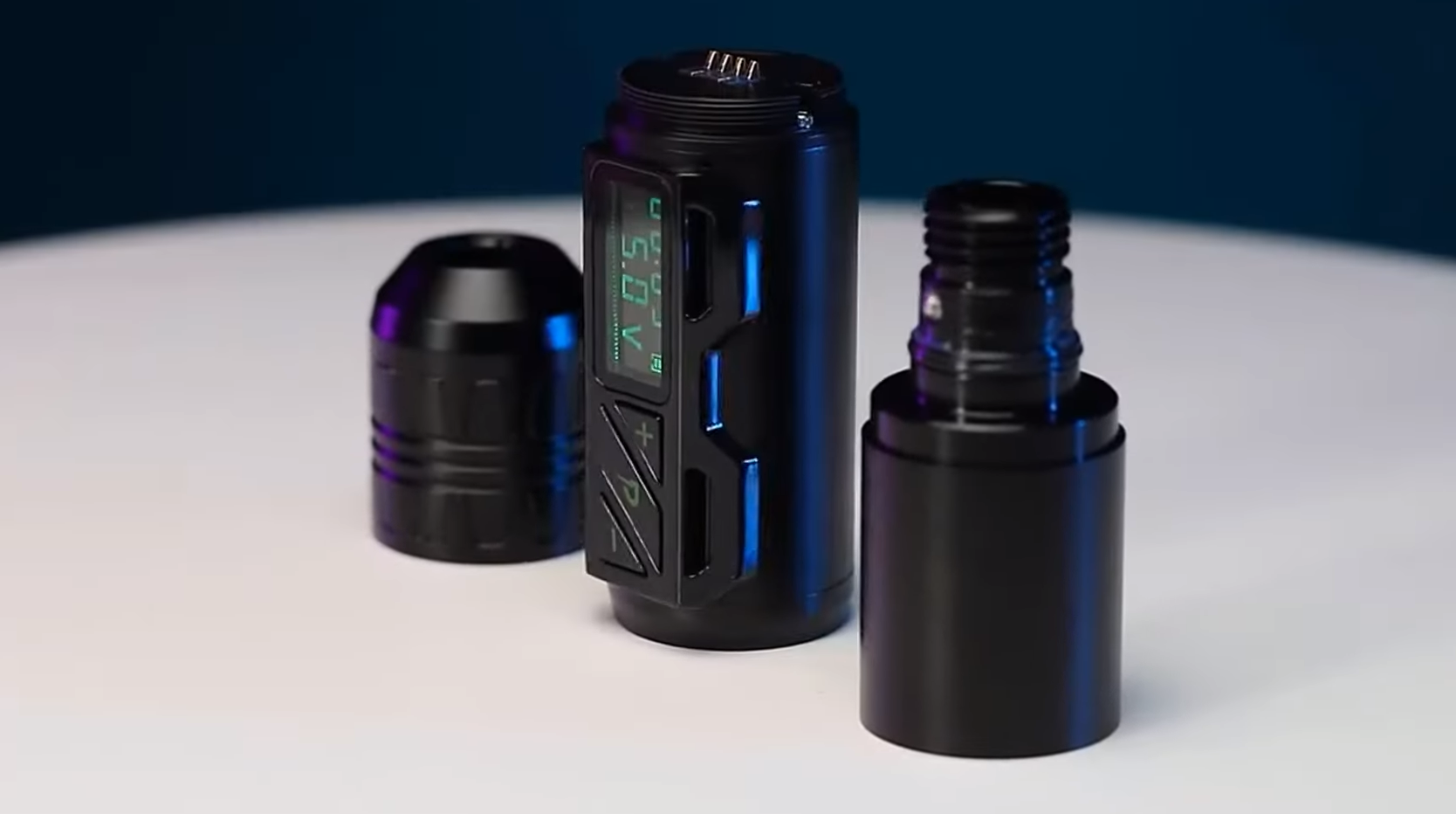
Wireless Tattoo Machines
- Flexibility and Mobility: The most notable benefit is unparalleled mobility. Without cords or foot pedals to hamper movement, artists can find new comfort in their work. This can lead to enhanced precision and creativity, as the artist is free to move and adjust their position without any restrictions.
- Ease of Use: Such machines often provide a simpler, more intuitive user interface. Voltage adjustments can be made quickly and easily, sometimes even with the touch of a screen. This leaves more time and mental energy to focus on the art itself, rather than the technical aspects of the device.
- Cleanliness: From a cleanliness perspective, wireless machines can make a significant difference. With fewer wires and accessories, there are fewer surfaces for potential contaminants to cling to, making the tattoo process more hygienic.
- Innovation: They also represent a commitment to innovation. The industry is moving forward, and these machines are at the forefront of that movement. By adopting wireless technology, artists can stay ahead of the curve and offer their clients the latest and greatest in tattooing technology.
- Battery Life: The most obvious limitation is battery life. Artists must ensure that their machines are fully charged before each session, and depending on the length of the session, charging or battery replacement might be necessary.
- Transition: There may also be a learning curve when transitioning from traditional machines to wireless ones. Artists accustomed to the tactile feedback of wired machines might need time to adjust to the different feel of wireless devices.
Pros & Cons
Wired Tattoo Machines
Pros:
- Constant Power Supply: Wired machines offer a continuous power supply, eliminating the risk of the machine dying mid-session.
- Tactile Feedback: Many artists appreciate the control and tactile feedback that these machines offer.
- Long-standing and Industry Standard: Wired machines are time-tested and have been the industry standard for decades.
Cons:
- Mobility Limitations: The wires and foot pedal can limit mobility and make maneuvering around the client more challenging. [2]
- Clutter: Wires and foot pedals can lead to a cluttered workspace.
- Potential Hygiene Issues: More equipment could potentially lead to more surfaces for contaminants to cling to.
Wireless Tattoo Machines
Pros:
- Unmatched Mobility: Without cords or pedals, artists can move around freely and find comfort in their work.
- Ease of Use: Wireless machines often have simpler, more intuitive user interfaces.
- Cleanliness: With fewer wires and accessories, wireless machines can contribute to a cleaner, more hygienic workspace.
- Innovation: Wireless machines represent a commitment to industry innovation and forward momentum.
Cons:
- Battery Life: Artists must ensure that their machines are fully charged before each session, and may need to pause for charging or battery replacement during longer sessions.
- Transition Difficulties: There may be a learning curve when transitioning from traditional machines to wireless ones, particularly for artists accustomed to the tactile feedback of wired machines.
Considerations When Choosing
When choosing between wired and wireless tattoo machines, there are several factors that an artist should take into consideration. It’s crucial to weigh these factors thoughtfully to select the machine that will most effectively enhance the tattooing experience, both for the artist and the client.
Battery Life
Choosing the right battery life for a wireless tattoo machine is a crucial consideration for any tattoo artist. While enjoying the freedom of mobility and lack of clutter that comes with wireless machines, battery life can be a defining factor in the efficiency and quality of work.
Each artist must first assess the average duration of their tattooing sessions. If you typically work with intricate designs that require long sessions, you’ll need a machine with a robust battery life. On the other hand, if your pieces are generally smaller and require less time, a machine with a shorter battery life might suffice.
Additionally, a reliable battery life contributes to a better client experience. It eliminates the need for interruptions to change or recharge the battery, allowing for a smoother, uninterrupted tattooing process. This not only saves time but also helps maintain a comfortable experience for the client.
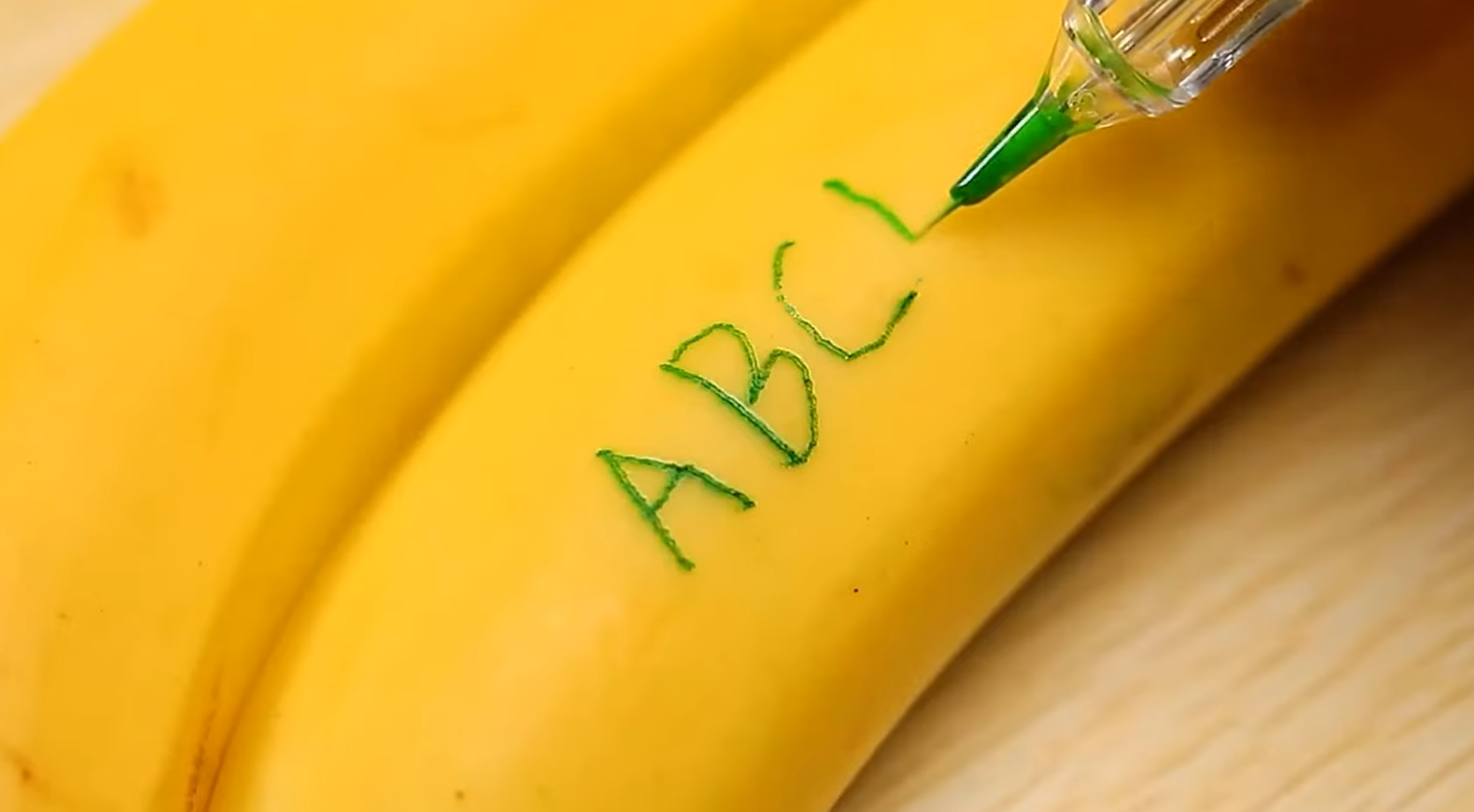
Maintenance
The first aspect of maintenance is regular cleaning. Proper hygiene is paramount in the tattoo industry, not only for the health of the client but also for the longevity of the machine. After each use, the machine should be thoroughly cleaned to remove ink residue, blood, or other contaminants.
Regular inspection of the machine for any signs of wear and tear is highly recommended. Check for any loose parts, frayed wires (in the case of wired machines), or signs of damage.
Weight and Balance
The weight and balance of tattoo machines should never be underestimated when it comes to choosing the perfect tool for your craft. The overall weight of the machine directly affects the handling and comfort of the artist, which in turn influences the precision and control exerted during the tattooing process.
Lightweight machines are generally preferred because they reduce hand fatigue, particularly during long tattoo sessions. Heavier machines, on the other hand, can cause strain and discomfort over extended periods of use, potentially affecting the quality of the artwork. However, it’s important to remember that the weight of the machine is often indicative of the materials used in its construction.
Typically, wired machines are heavier than their wireless counterparts due to the additional components they contain. Wireless machines, being cable-free, can afford to be lightweight while still maintaining a good balance. However, with advancements in technology, there are now wired machines available that are designed to be lightweight without compromising on balance and stability.
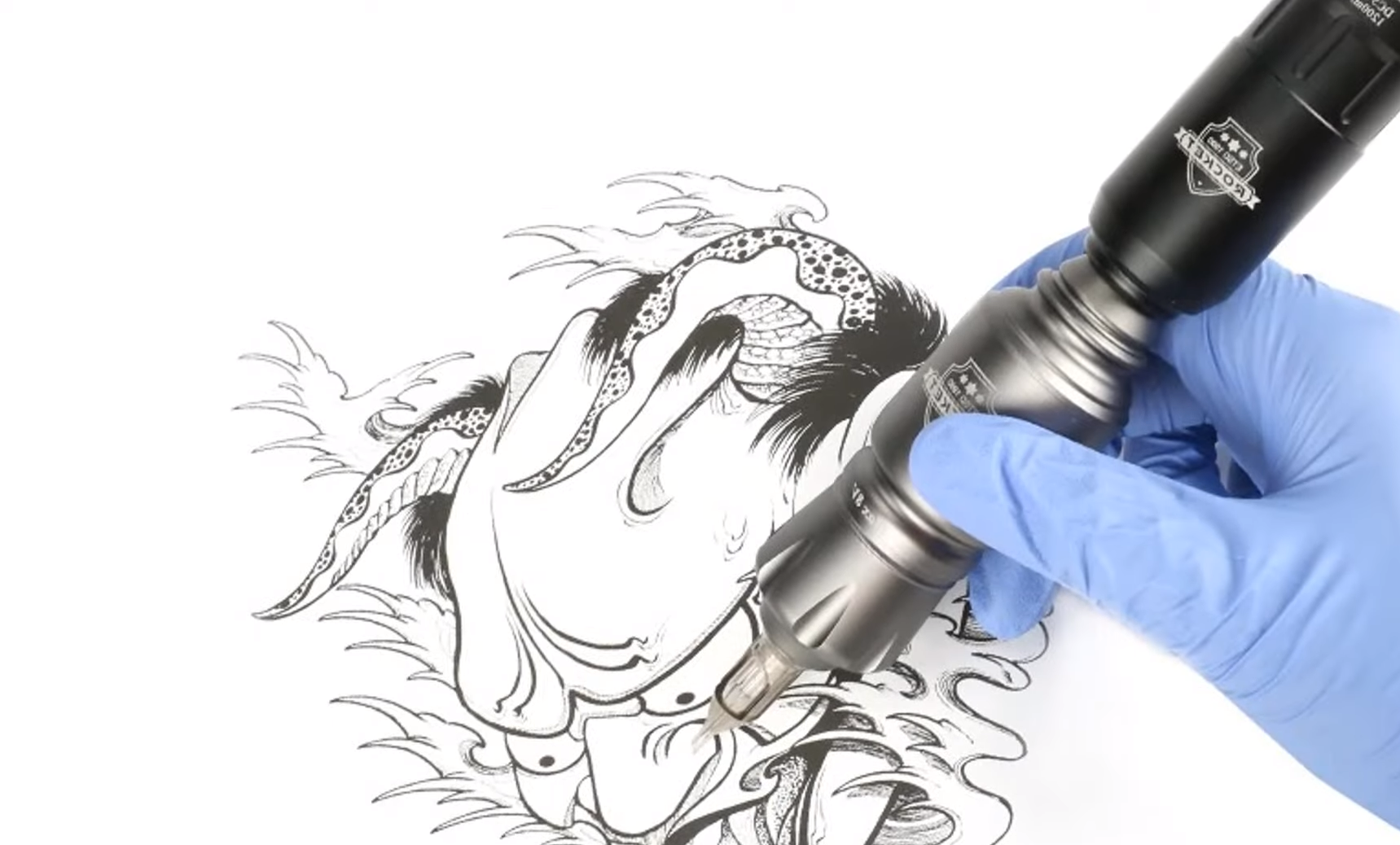
Cost
The cost of a tattoo machine is a pivotal factor to contemplate when making a purchase decision. It can vary significantly based on factors such as the type of machine, brand reputation, material quality, technology used, and additional features offered.
Tattoo machines can range from as low as $50 to as high as several thousand dollars. Budget-friendly machines, often priced below $200, are usually aimed at beginners or hobbyists. These machines might lack some advanced features but are generally sufficient for learning and practicing basic tattoo techniques.
Mid-range machines, priced between $200 and $600, are typically aimed at professional tattoo artists. [3] They tend to include more robust construction and advanced features, offering a better balance between value and performance.
High-end machines, costing $600 or more, are often the choice of seasoned professionals and serious enthusiasts. These machines are made from premium materials, incorporate the latest technology, and offer superior precision and control. They are usually more durable and reliable, providing a higher-quality tattooing experience.
Wired vs. Wireless Machines
The cost of a tattoo machine can also vary depending on whether it’s wired or wireless. Wired machines are generally less expensive, as they are more traditional and simpler in design. However, they may require additional spending on cords, power supplies, and maintenance.
In contrast, wireless machines are usually more expensive due to the convenience and advanced technology they offer. They eliminate the need for cords and power supplies, which can offset some of the initial cost. However, they may require more frequent battery replacements, which could add to the overall cost.

Adaptation
The capability to adjust to various types of tattoo machines is a valuable skill for any tattoo artist. This adaptability allows artists to work with a variety of equipment and styles, broadening their range and capabilities. In order to adapt effectively, an artist must initially gain a comprehensive understanding of the various kinds of tattoo machines. These include coil machines, rotary machines, and pneumatic machines, each with its unique characteristics. Coil machines are traditional, heavy-duty machines known for their power and precision. Rotary machines are lightweight and versatile, suitable for both lining and shading. Pneumatic machines are modern, air-powered equipment that are easy to maintain and sterilize.
The weight and balance of each machine type will also impact how an artist handles the equipment. Heavier coil machines may require a firmer grip and may cause more hand fatigue, while lighter rotary machines allow for more maneuverability and comfort during long tattoo sessions.
How long do wireless tattoo machines last?
The longevity of wireless tattoo machines can fluctuate considerably and is contingent on several factors, including the brand, construction quality, frequency of use, and the level of maintenance it receives. As a general rule, high-quality machines from reputable manufacturers can last many years if properly cared for. The batteries in these machines, however, typically need replacing after 1-2 years of regular use.
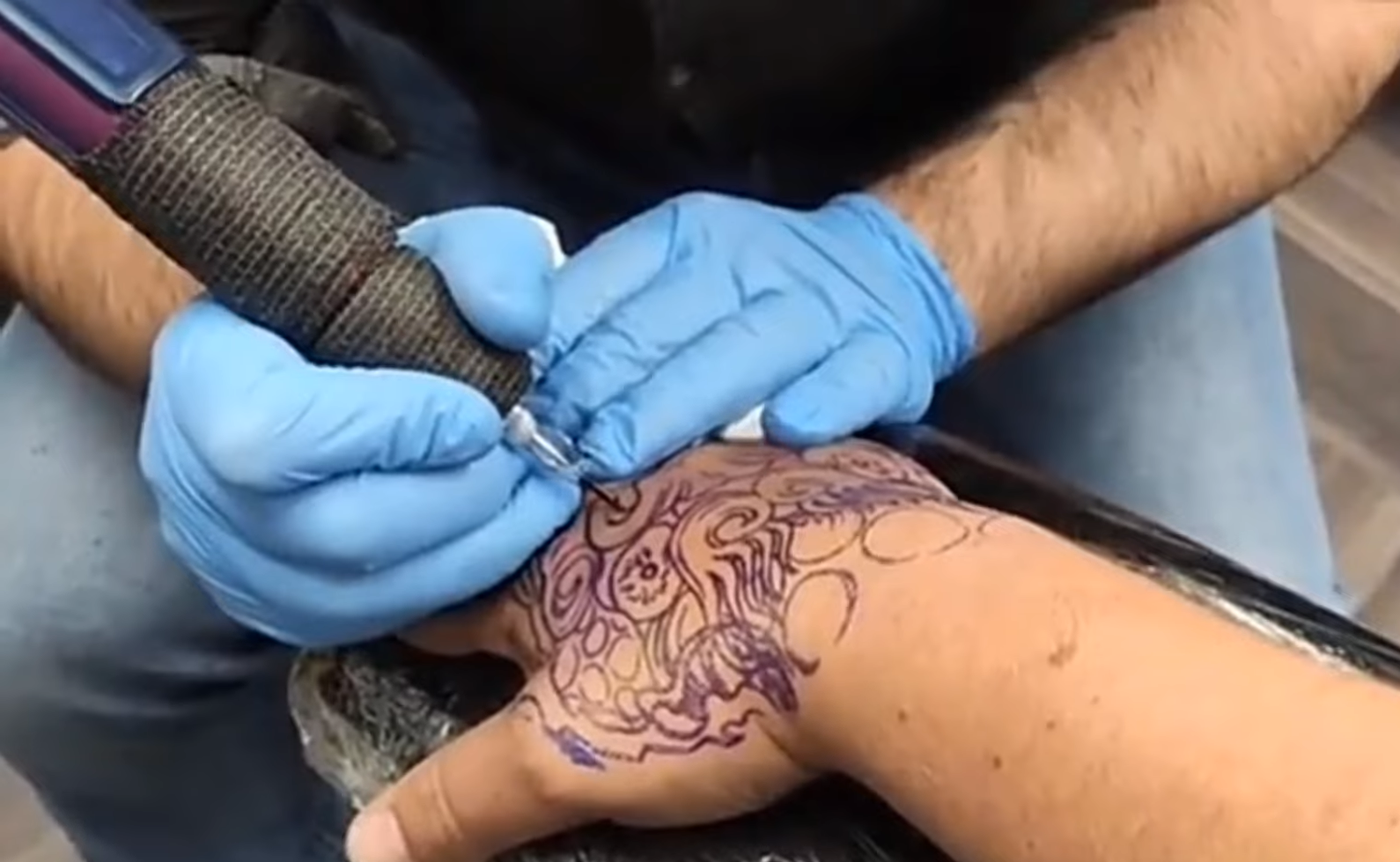
Tips on How to Take Care
- Regular Cleaning. Regular cleaning of your tattoo machine is crucial to ensure its longevity. Make sure to carefully clean the machine after each use, removing any ink or blood residues. Use an antibacterial solution and a soft cloth for cleaning. Do not immerse the machine in water or any other liquid.
- Proper Storage. When not in use, store your tattoo machine in a dry and clean place. Avoid exposure to dust, humidity, and extreme temperatures. A protective case can be a good investment to keep your machine safe and secure.
- Regular Maintenance Checks. Periodically inspect your tattoo machine for signs of wear and tear. Check the parts for any damages or loose screws. If you find any issues, repair or replace the affected parts promptly.
- Battery Care. For wireless machines, proper battery care is crucial. Always charge the batteries using the charger provided by the manufacturer. Do not overcharge the batteries as it can reduce their lifespan. Replace the batteries as recommended by the manufacturer.
- Use Quality Inks. Always use high-quality tattoo inks with your machine. Low-quality inks can clog the machine and decrease its performance.
Frequently Asked Questions
How do you sterilize a wireless tattoo machine?
Sterilizing a wireless tattoo machine can be a bit different from sterilizing a traditional wired one due to its electronic components. However, hygiene is paramount in tattooing, and some parts of the machine can be sterilized. Here are the steps:
- Disassemble the machine: Before you start, make sure to remove any batteries from the machine. Then, disassemble it as much as possible according to the manufacturer’s instructions.
- Clean the parts: Clean all the removable parts with warm, soapy water to remove any residue.
- Sterilize the parts: Sterilize the removable parts by soaking them in a medical-grade disinfectant solution for the recommended time.
- Dry and reassemble: After sterilizing, rinse the parts in sterile water and let them air dry. Once dry, reassemble the machine.
Which is the best wireless tattoo machine?
Choosing the best wireless tattoo machine often comes down to personal preference, but there are a few standout models recognized for their quality, reliability, and performance. The Dragonhawk Mast Archer wireless tattoo machine is highly rated for its ergonomic design, powerful custom motor, and up to 10 hours of continuous battery life. The FK Irons Flux is another top pick, offering consistent power, seamless connection to mobile apps for real-time session tracking, and a user-friendly interface. However, the best wireless tattoo machine for you will depend upon your specific needs, preferences, and budget.
What type of tattoo machine is better?
The type of tattoo machine that is better largely depends on the artist’s preference and the specific tattooing task at hand. Coil machines are known for their precision and are often favored for lining and detailed work. They allow for a high level of customization regarding needle depth and speed, which can provide experienced artists with a greater level of control. On the other hand, rotary machines are known for their versatility and consistency, making them ideal for shading and coloring. They are also typically quieter and cause less skin trauma, which can make the tattooing process more comfortable for the client. However, newer wireless tattoo machines are becoming increasingly popular due to their portability, ease of use, and generally lighter weight.
What should I look for in a wireless tattoo pen?
When looking for a wireless tattoo pen, several crucial factors should be considered to ensure you’re investing in a quality piece of equipment.
- Battery Life: A long-lasting battery ensures uninterrupted work. Look for a pen with a high-capacity battery that can last for several hours on a single charge.
- Quality and Build: The pen should be sturdy and durable, made from high-quality materials. It should feel comfortable and balanced in your hand.
- Performance: Look for a pen that offers consistent power and precision. It should operate smoothly, without causing excessive trauma to the skin.
- Maintenance: The pen should be easy to clean and maintain. Additionally, parts like the battery should be easily replaceable.
- Brand Reputation: Consider the manufacturer’s reputation. Brands known for their quality and customer service are typically more reliable.
- Price: Finally, consider the price. While quality is important, the pen should also offer good value for money.
Useful Video: 5 Best Wireless Tattoo Machine on Amazon for Beginners
Conclusion
In conclusion, taking good care of your tattoo equipment is essential not only for the longevity of your tools but also for the safety of your clients. Wireless tattoo machines, while offering convenience and flexibility, require specific care and maintenance. Keep them clean, sterilized, and well-maintained to ensure smooth operation. When it comes to choosing the best wireless tattoo machine or pen, several factors come into play, such as battery life, build quality, performance, and cost. Research and consider your specific needs and preferences to make an informed decision. Remember, a good tattoo machine is an investment in your art, your client’s satisfaction, and your professional growth.
References:
- https://www.cnctattoo.com/pros-and-cons-of-wireless-tattoo-machine/
- https://tattoosight.com/wireless-vs-wired-tattoo-machine/#pros-and-cons-of-wired-machine
- https://authoritytattoo.com/how-much-do-tattoos-cost/



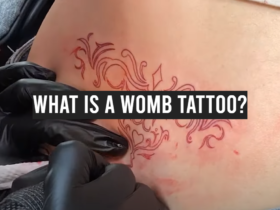

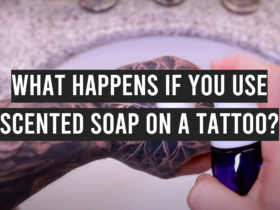
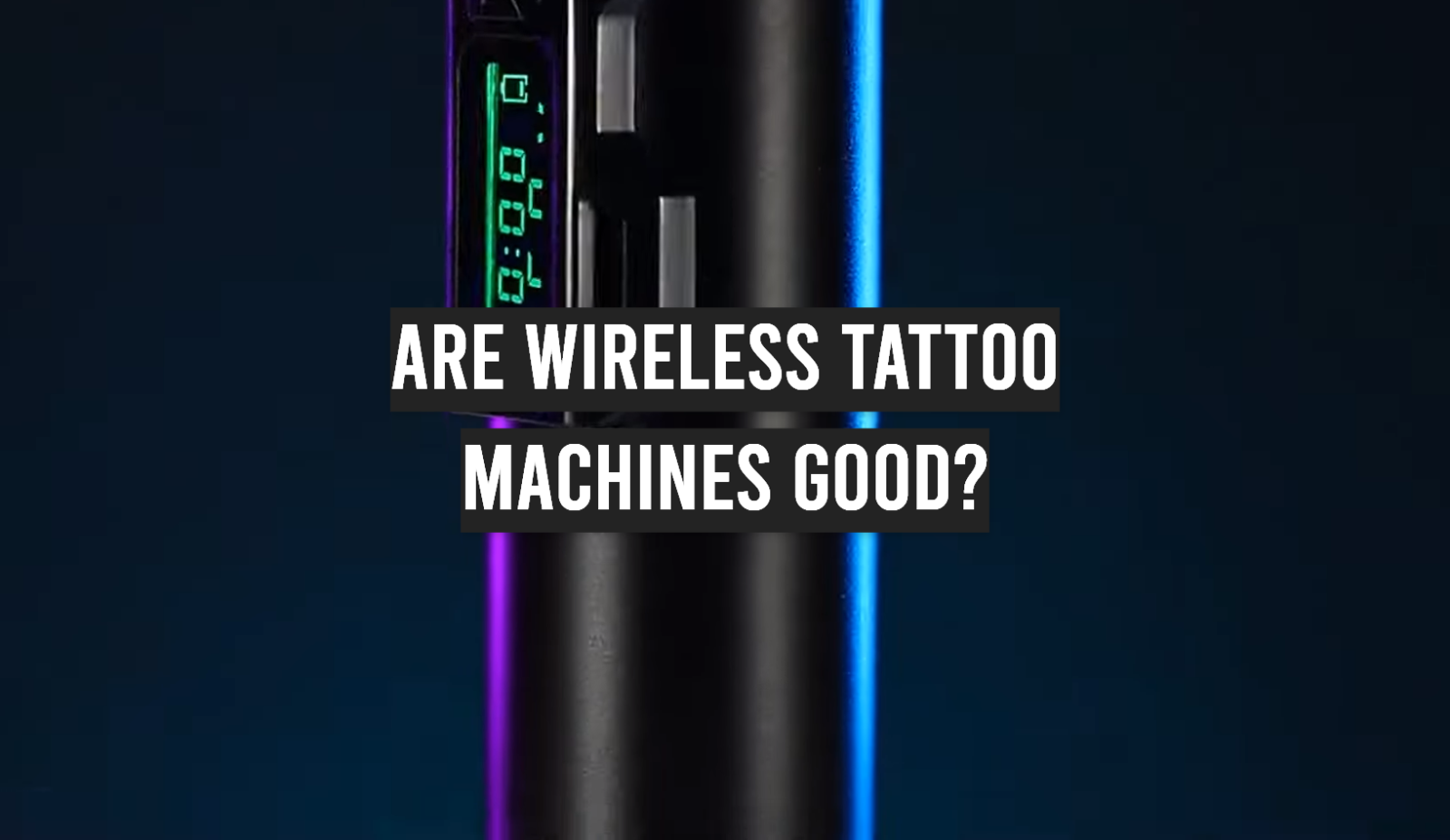
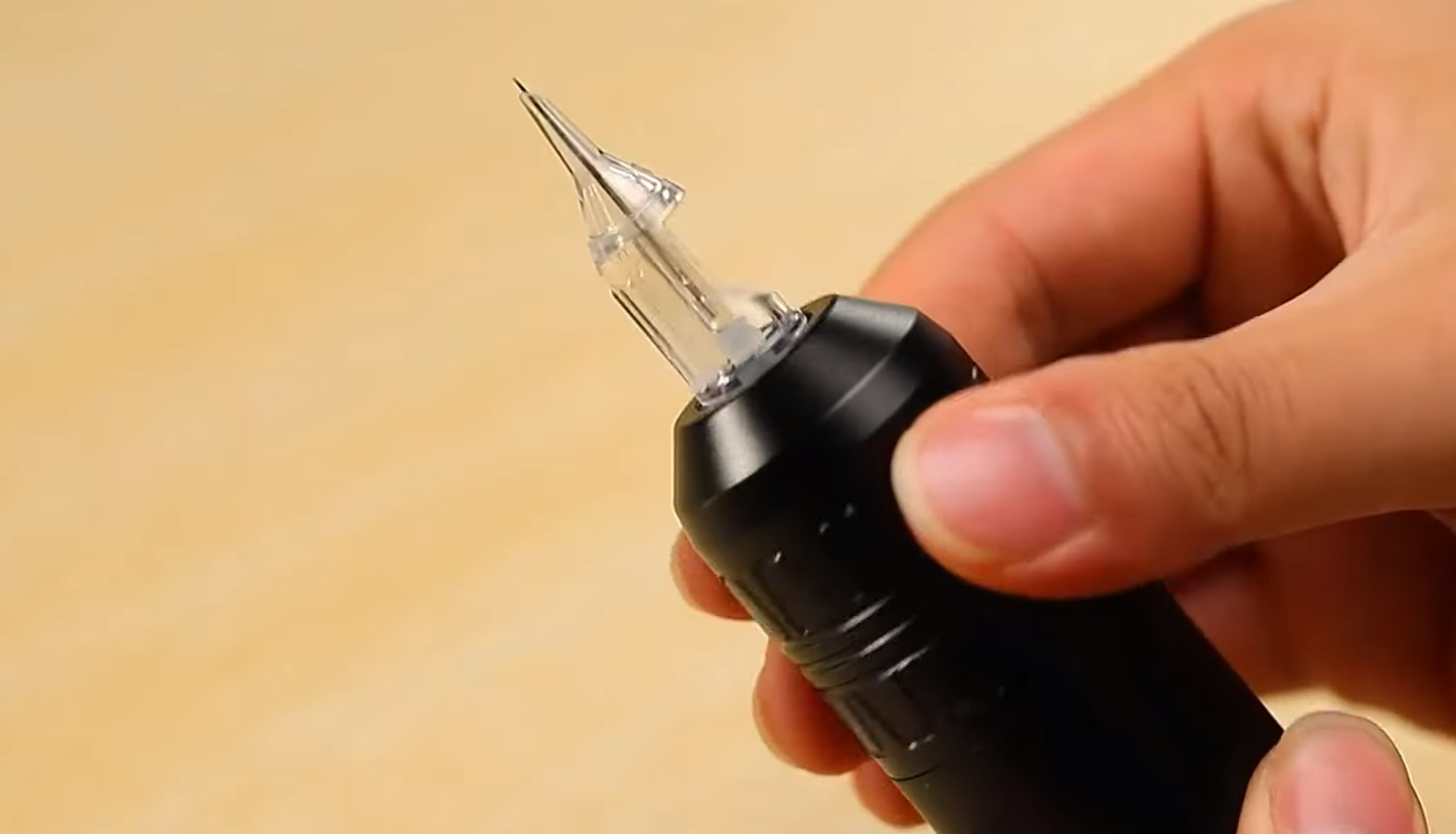
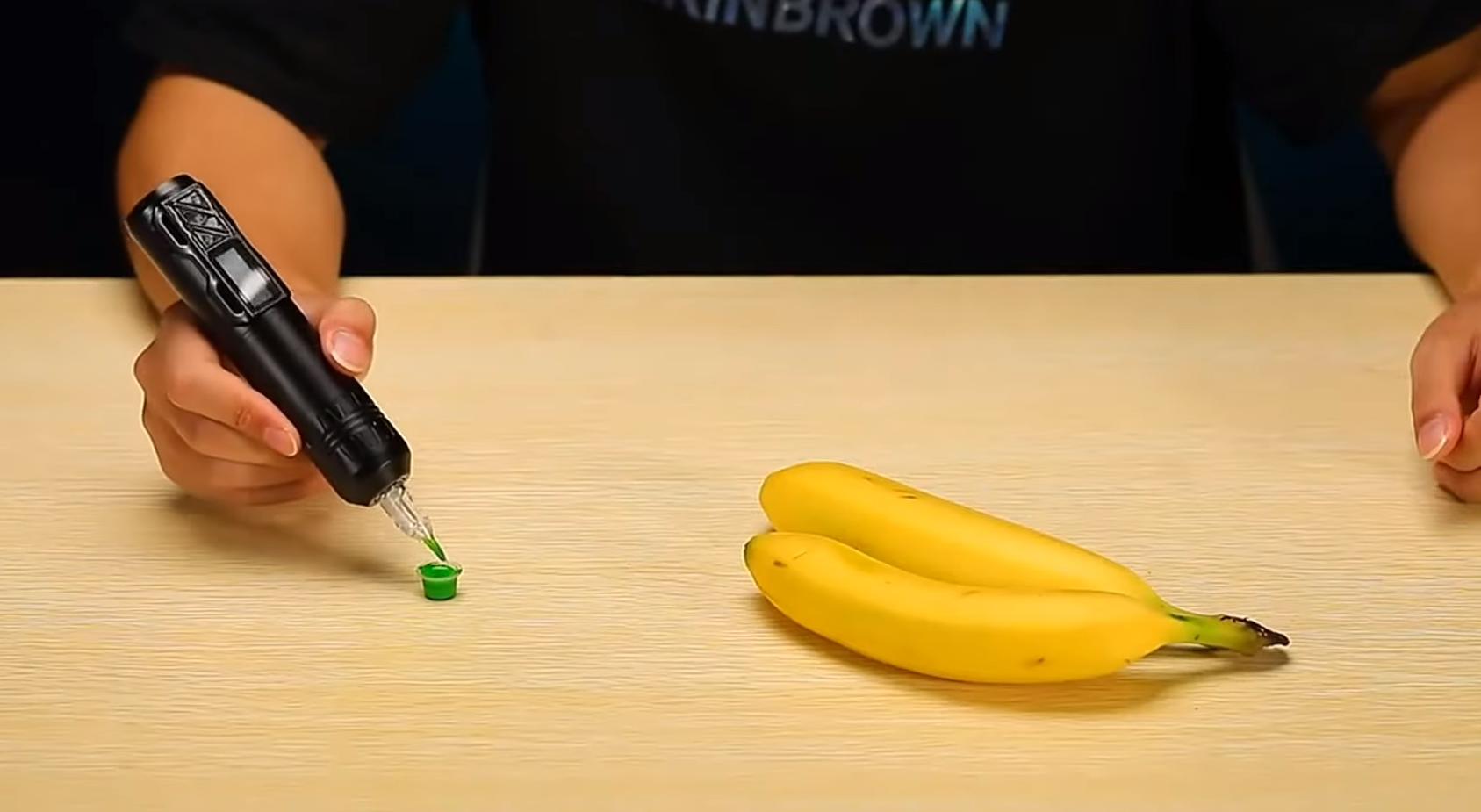

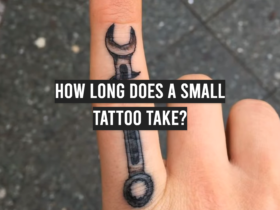

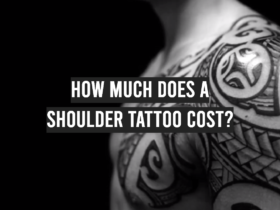
Leave a Review